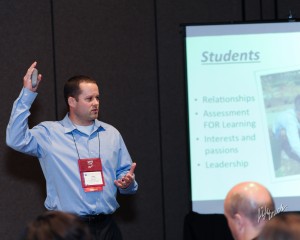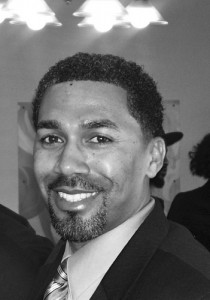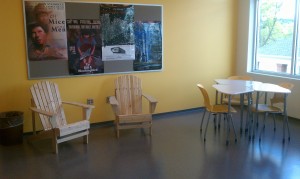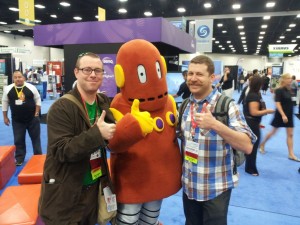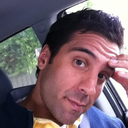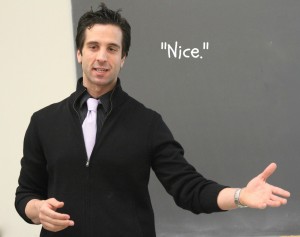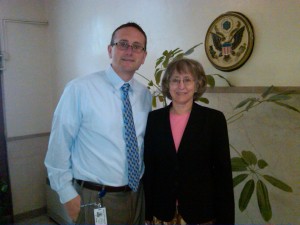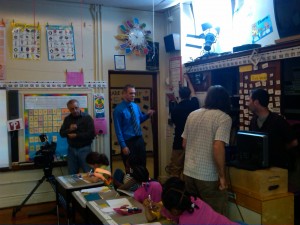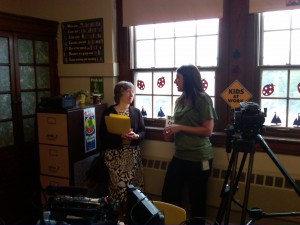This is the sixth in the series about educators who are making a difference
Where is the monkey?
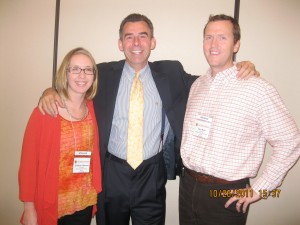
When worlds collide! My twitter mentors Jessica Johnson and Curt Rees with Todd Whitaker (photo courtesy of C. Rees)
Picture this. You are on a run, and all the sudden you get an idea. You are thinking about how people do not take responsibility for their actions. Monkeys on your back. Average. Great. You get back to your house, and put it all together. I am sure that scenario has happened to a lot of us, right? Difference is, Todd Whitaker ended up writing one of the hottest books on the market – Shifting The Monkey.
OK, with a show of hands, how many of you have read Shifting the Monkey? What Great Principals Do Differently? Maybe one of his other books? OK, how many have heard Todd speak? Been lucky enough to have him present to your school? Watched his videos? Took one of his classes? If you answered yes to one or more of those questions, then you know about Todd Whittaker. For educational administrators Todd is a “must read.” He has written 25 books, presented at numerous national, state, and local conferences, and is a sought after speaker/consultant…. all this on top of being a university professor, father, and devoted husband.
I tried shifting the monkey with Todd on Tuesday, July 10 a few days after I finished reading the book. I must admit, though, prior to reading Shifting I had never read Todd’s books, never heard him speak, never saw his videos. All I knew about Todd was what I had learned through twitter. He was a university professor who had written a lot of books, and created a lot of chatter. That is why I bought Shifting the Monkey. Once I read the book I was hooked. For my summer professional development to be complete, I thought to myself, I have to speak to Todd Whitaker. So I messaged him through twitter, and he agreed to speak with me. I was so excited to be speaking with Todd, I posted on facebook, twitter, and google +.
I tried to shift the monkey with Todd as we spoke on the phone. It didn’t work. He was in the middle of helping his daughter move into an apartment. I was sitting in my office, poised to learn from one of the greats, and I wanted so badly to shift the monkey. Why, might you ask? Because, guess what? That is what we do ALL the time. We shift, they shift, he shifts, she shifts, everyone shifts! Well, not Todd. Not anymore. Next time you have the chance, I dare you…try to shift the monkey with Todd Whitaker!
Where should it be?
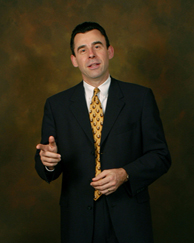 For about 30 minutes, Todd and I talked about school leadership, business, politics, teachers, administrators, and life in general. I asked Todd about his writing process. He said that he usually gets inspired by things that are wrong. So, he will be reading something, anything, and he will see through the veil of the writer. Call it a gift, call it a curse. Either way Todd will let you know what you are doing wrong. Todd has wealth of experiences, and street credibility because he has been in our shoes. He was a student, parent, math teacher, coach, curriculum director, and a principal before becoming a university professor.
For about 30 minutes, Todd and I talked about school leadership, business, politics, teachers, administrators, and life in general. I asked Todd about his writing process. He said that he usually gets inspired by things that are wrong. So, he will be reading something, anything, and he will see through the veil of the writer. Call it a gift, call it a curse. Either way Todd will let you know what you are doing wrong. Todd has wealth of experiences, and street credibility because he has been in our shoes. He was a student, parent, math teacher, coach, curriculum director, and a principal before becoming a university professor.
He gave me so many kernels of useful information throughout the conversation. He allowed me to provide him with a scenario, and he would then use my scenario to discuss Shifting the Monkey. I learned that I shift a lot of monkeys. Thankfully, I won’t be the same kind of principal as a result of our conversation. As he said, “Spike, if you want to change your school, you have to make decisions based on the best teachers. You will not turn that school around with crummy teachers.”
How do I shift the monkey to its proper place?
Here are my Todd Whitaker take-a-ways from our conversation:
- Your best people work the hardest, the average ones don’t
- When people come to you with excuses as to why something can’t work, they are merely shifting the monkey. They have done it their whole life. They are experts in shifting the monkey
- Average people work hard to be average. They love to hear that things such as “We can’t do that here,” or “The parents are (fill in the blank),” or maybe, “The curriculum is (fill in the blank).” All of these are shifting techniques
- Change does not take a long time! People love to say that it takes a long time because they don’t want to work hard. For example, have you ever had an out of control class with a marginal teacher (could be a substitute, maternity leave replacement, or even a tenured teacher)? You take another, stronger teacher and put them in that class, and next thing you know it’s a different class? Change doesn’t take a long time, unless you are average
- Great people do not see the “before.” Continuing that example from above. The great teacher that comes in, and turns things around does not need to know what happened before. They take ownership of the class, and move forward
- Average principals love to read, and quote literature such as, “Change takes at least 5 to 7 years.” Why do they love it? They have a built in excuse to their goal statement, and can back it up with an author
- In order to change a school, a principal must be willing to hold all teachers accountable, no excuses
- The principal must treat everyone (great and average alike) with the same respect, and in a positive manner
- The job of the principal is not to teach or instruct the students. Rather, the job of the principal is to teach and instruct the teachers so that they can teach and instruct the students
- In staff meetings, don’t generalize or use a “blanket” monkey. I recently did this and Todd called me on it. Ouch!
- “A chain is only strong as its weakest link” – Guess what? That’s not accurate, and people who quote it are shifting the monkey
- Great teachers don’t want to be the principal’s pet, but the average teachers want to make it seem like the great teachers ARE the principal’s pet. This tactic helps average teachers shift their monkey, and attempts to bring down great teachers
- Principals, answer this question – Who is responsible for the culture, and climate in your building? The average principal would respond by saying, “The teachers, PTA, students, BOE, etc.” The great principal would respond, “I am!”
After I hung up with Todd, I immediately ordered What Great Principals Do Differently. I started reading it later on that day. Every time I am on a run, or driving in my car I am thinking about how to be a great principal, where the monkeys are, where they should be, and how to get them there.
I do not want to be average. For the sake of my school, the children, and our status as viewed by the State of New Jersey, I have to be great. I don’t have time to be average. Neither do my teachers. What about you?
Look for upcoming posts on other educators making a difference such as Erin Klein, Curt Rees, Jessica Johnson, Shelly Terrell, Kelly Tenkley, Patrick Larkin, and many more….
Previous posts dedicated to educators making a difference: George Couros, Justin Tarte, The Nerdy Teacher, Dwight Carter, Chris Wejr
Resources:
